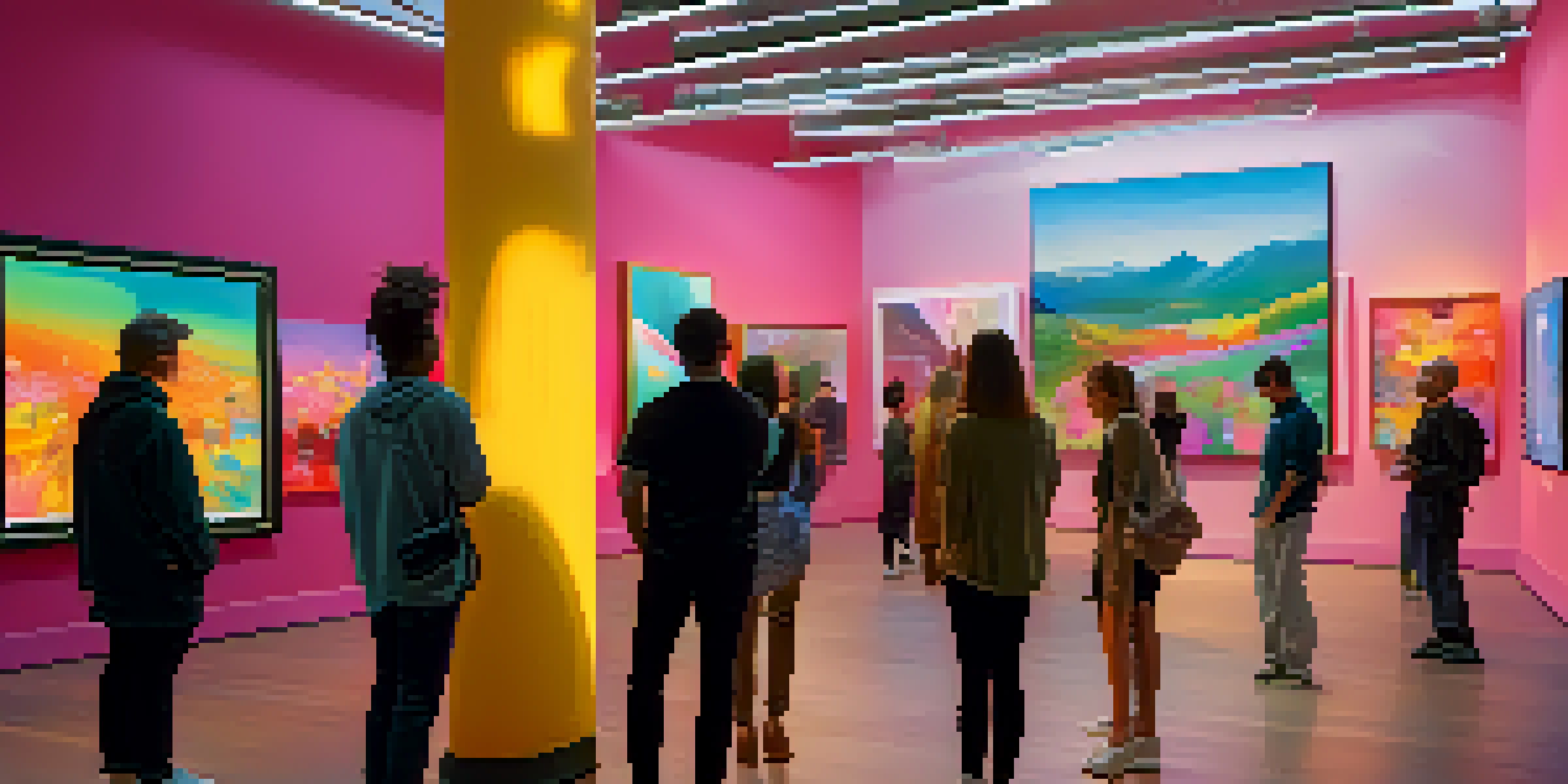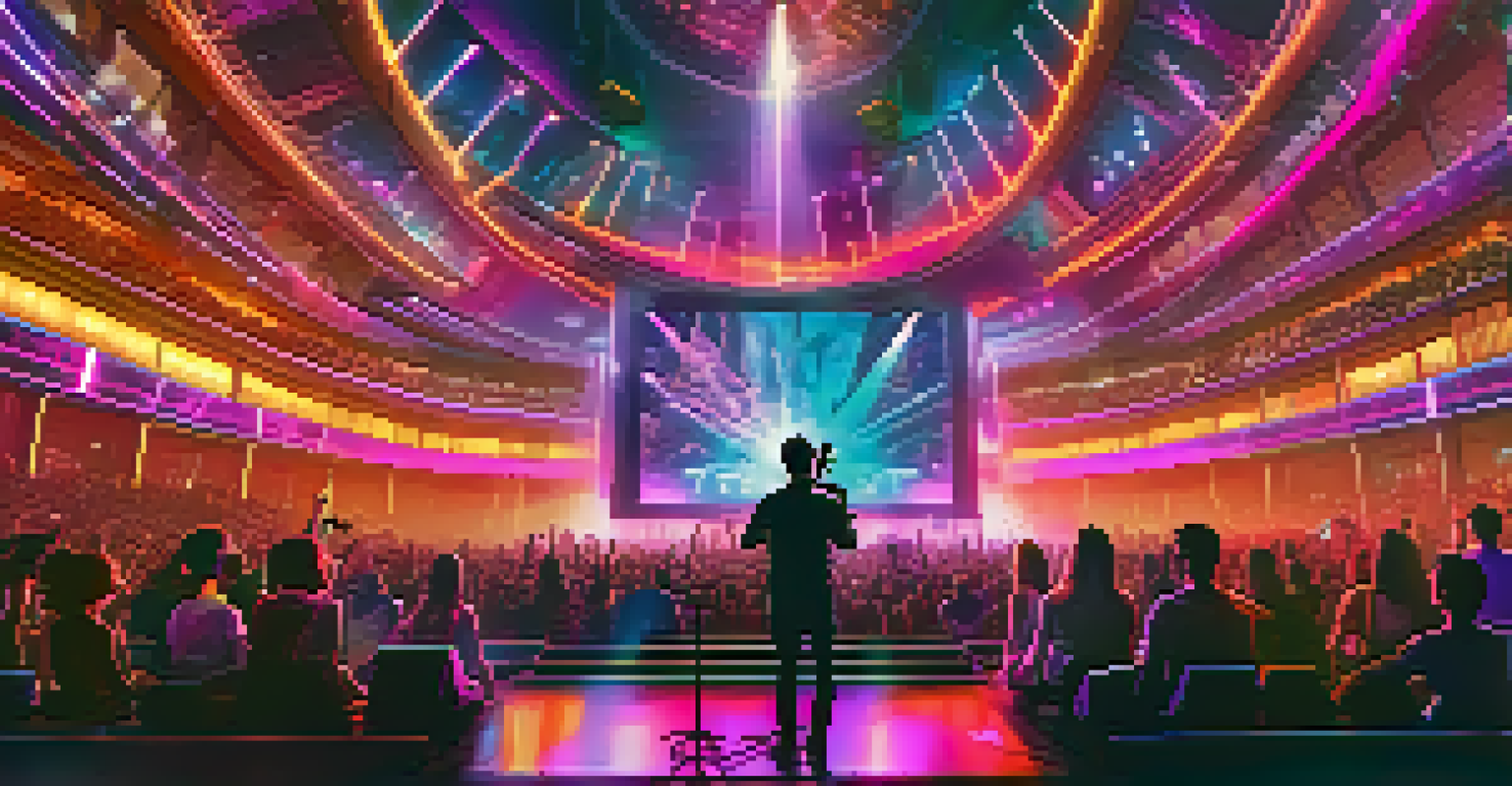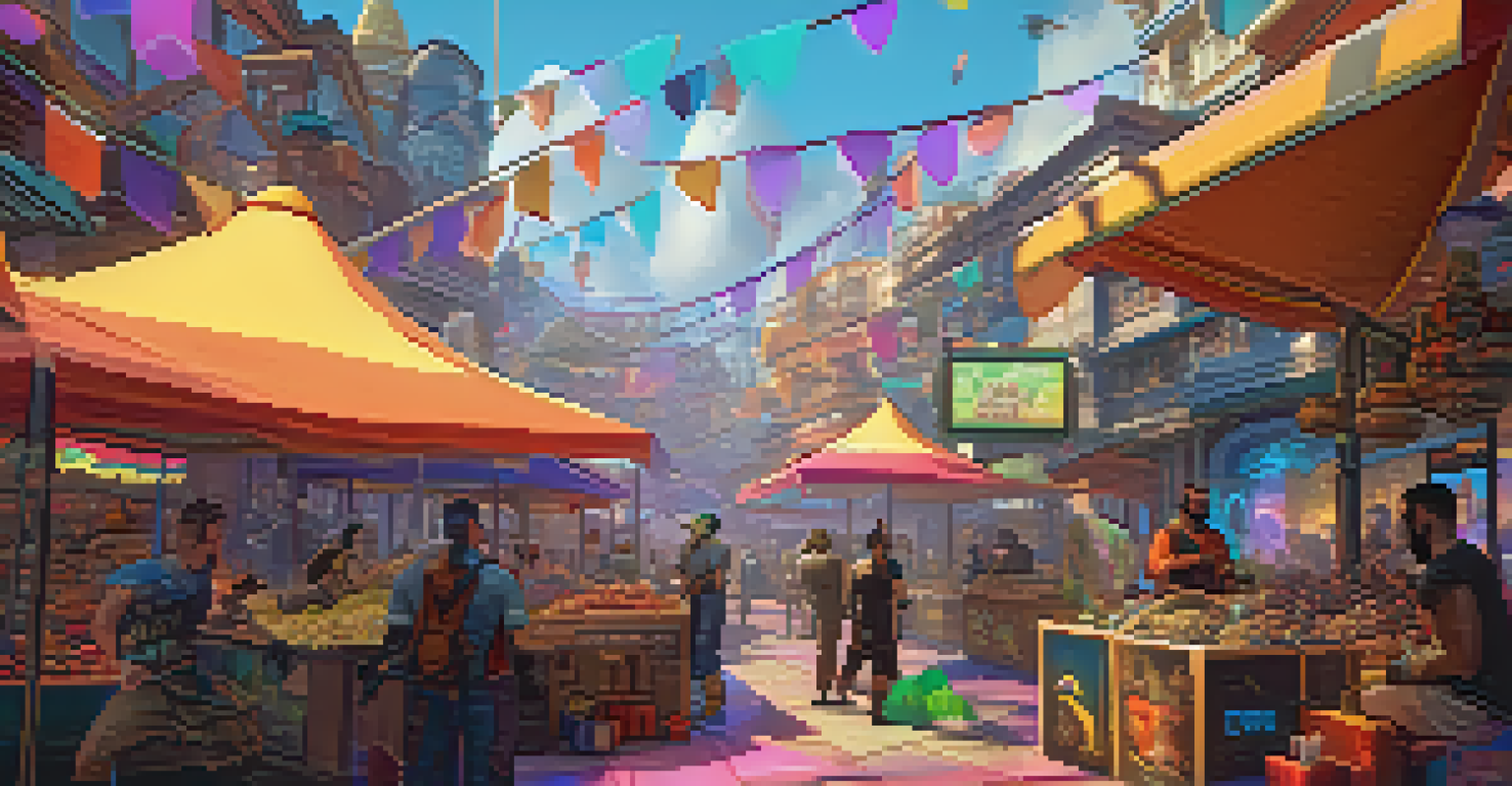NFTs: The Next Big Thing in Digital Product Sales

What Are NFTs and Why Do They Matter?
NFTs, or non-fungible tokens, are unique digital assets verified using blockchain technology. Unlike cryptocurrencies, which are interchangeable, each NFT has its distinct value and characteristics. This uniqueness is what makes them particularly appealing in the digital marketplace.
NFTs are a new way to create and own digital assets, providing artists and creators with opportunities they never had before.
Imagine owning a one-of-a-kind piece of art or a rare trading card, but in digital form. NFTs allow creators to tokenize their works, giving buyers proof of ownership and authenticity. This shift not only empowers artists but also creates new revenue streams.
As the digital landscape continues to evolve, NFTs are positioning themselves as a vital component of the future of digital ownership. Their ability to represent ownership and provenance is attracting attention from various industries, from art to gaming.
How NFTs Are Revolutionizing Digital Art Sales
The art world has seen a significant transformation with the rise of NFTs, enabling artists to sell their work directly to consumers. This model eliminates intermediaries, allowing creators to retain a larger share of the profits. It’s a game-changer that fosters a more equitable marketplace.

For example, artists like Beeple have sold digital artwork for millions as NFTs, showcasing how valuable digital art can be. This not only validates the medium but also inspires countless other artists to explore NFT sales. The potential for exposure and financial gain is a powerful motivator.
NFTs Transform Digital Ownership
NFTs enable unique digital assets that empower creators and redefine ownership in various industries.
Moreover, NFTs allow for innovative features like royalties on resale, ensuring that artists benefit from their work even after it leaves their hands. This ongoing revenue stream is something traditional art sales often lack, further enticing creators to enter the NFT space.
The Role of NFTs in Music and Entertainment
NFTs are not just limited to visual art; they are making waves in the music and entertainment industries too. Musicians can release exclusive tracks, albums, or even concert tickets as NFTs, giving fans a unique experience and ownership. This offers a refreshing alternative to conventional music distribution models.
The future of NFTs is not just about art; it’s about creating a new economy where digital ownership is a reality.
For instance, artists like Grimes and Kings of Leon have successfully launched NFT collections, generating significant revenue while engaging with their fanbase in new ways. This direct connection fosters a sense of community and loyalty, which is crucial in today’s digital age.
Additionally, NFTs can unlock special perks for fans, such as backstage access or meet-and-greet opportunities. These unique offerings enhance the overall fan experience and create a deeper emotional connection between artists and their audience.
Gaming and NFTs: A Perfect Match
The gaming industry is another realm where NFTs are taking hold. Players can own in-game assets, such as skins, weapons, or virtual land, as NFTs. This ownership provides real value to players, as they can buy, sell, or trade these assets on various marketplaces.
Imagine spending hours building a virtual farm or castle and being able to sell it as an NFT. This not only adds an element of investment to gaming but also fosters a sense of achievement and ownership. Players are no longer just consumers; they become stakeholders in their gaming experiences.
Art and Music Thrive with NFTs
Artists and musicians can sell directly to consumers, retaining profits and fostering stronger connections with fans.
Moreover, the integration of NFTs in gaming opens up endless possibilities for collaboration and crossover events. Players from different games can interact in shared virtual spaces, creating a vibrant ecosystem that enhances engagement and community.
Challenges Facing the NFT Market
Despite the excitement surrounding NFTs, several challenges need addressing for widespread adoption. One major concern is the environmental impact associated with blockchain technology, particularly proof-of-work systems that require significant energy consumption. This has led to criticism from sustainability advocates.
Additionally, the market is still relatively new and can be volatile. Prices of NFTs can fluctuate dramatically, making it a risky investment for buyers. Educating consumers about the potential risks and rewards is crucial for fostering a healthy market.
Lastly, there is a growing issue of copyright infringement, as some individuals create and sell NFTs of artwork without the original artist's consent. Establishing clearer regulations and standards will be essential for protecting creators' rights and maintaining trust in the NFT ecosystem.
The Future of NFTs in Digital Product Sales
Looking ahead, the potential for NFTs in digital product sales is immense. As technology advances and more industries explore NFT applications, we could see broader acceptance and integration into everyday transactions. This could fundamentally reshape how we perceive ownership in the digital space.
Imagine a world where everything from virtual real estate to fashion items can be owned and traded as NFTs. This shift could lead to new business models and opportunities for creators and consumers alike, fostering a more dynamic and engaging digital marketplace.
Gaming Benefits from NFT Integration
Players can own and trade in-game assets as NFTs, enhancing their investment and engagement in gaming experiences.
Ultimately, the success of NFTs will depend on their ability to adapt and address existing challenges. By prioritizing sustainability, protecting intellectual property, and educating consumers, NFTs can become a staple in the digital economy.
Getting Started with NFTs: A Guide
If you're intrigued by the world of NFTs and want to dive in, the first step is to choose a digital wallet that supports them. Wallets like MetaMask or Coinbase Wallet allow you to store your NFTs securely and interact with various marketplaces. Think of it as setting up a bank account for your digital assets.
Next, explore NFT marketplaces such as OpenSea or Rarible. These platforms enable you to buy, sell, and trade NFTs with ease. Take your time browsing through different categories, and consider what types of digital products interest you the most, whether it's art, music, or gaming items.

Lastly, if you’re a creator looking to mint your own NFTs, research the process thoroughly. Each platform has its own guidelines, so understanding how to create and list your NFTs is crucial. Remember, the key to success in this space is not just about selling but also about building a community and connecting with your audience.